Prof. Dr. Santi Pailoplee, Department of Geology, Faculty of Science, Chulalongkorn University, in collaboration with the Faculty of Archaeology, Silpakorn University, discovered a large number of rocks and rock formations on Khao Phanom Rung-Plai Bat, Chaloem Phra Kiat District, Buriram Province, which geologically signify human activity in the past, not natural formation.
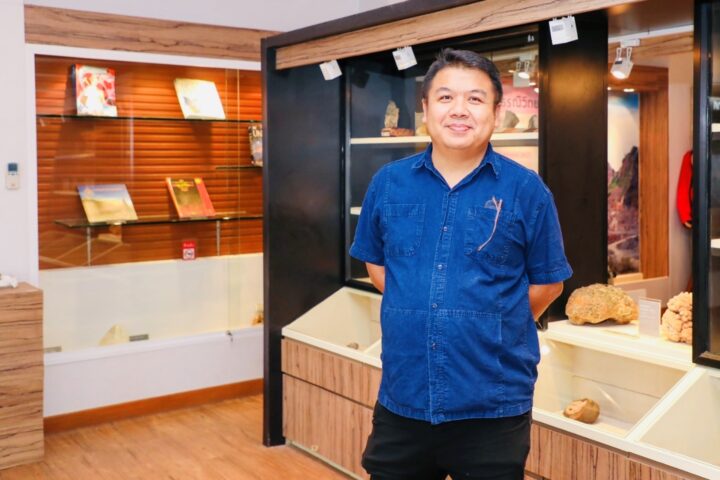
Newswise — Prof. Dr. Santi explained that geologically, Khao Phanom Rung and Khao Plai Bat, Chaloem Phra Kiat, Buriram, are Quaternary volcanoes formed from the eruption and flow of lava about 1 million years ago. Once cooled, lava hardened and became basalt, which comes in massive basalt, vesicular basalt, and scoria, which is porous like a sponge, depending on the differences in the amount of gas in the lava and the geological details of each eruption.
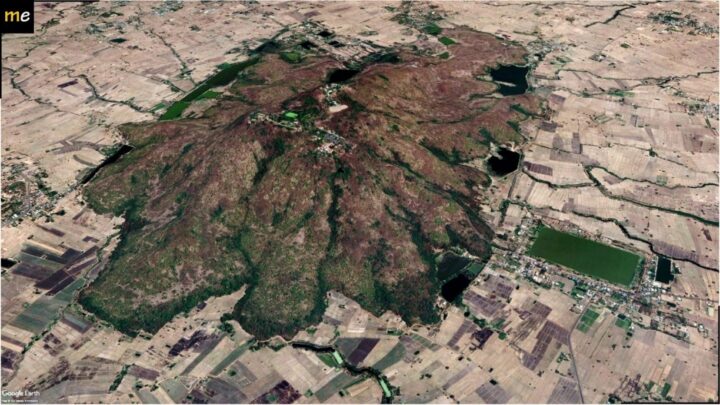
a lone volcano in the plain of Chaloem Phra Kiat, Buriram
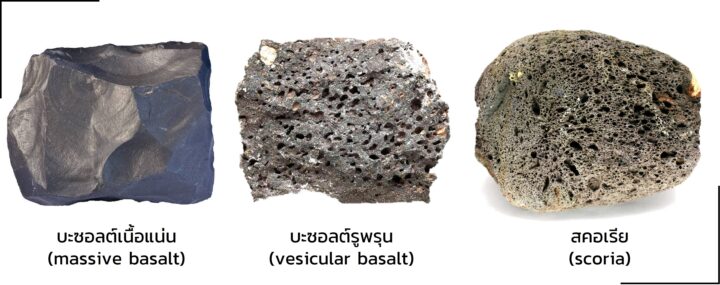
After surveying the area at both Khao Phanom Rung and Khao Plai Bat, Prof. Dr. Santi and his team found that naturally, there are basalt rocks of various sizes scattered randomly all over the area. However, Prof. Dr. Santi noted that in some areas, basalt rocks are found densely piled in 2-3 layers of various heights. In many places on Khao Plai Bat, basalt blocks appeared to have been arranged in a line of 150 – 200 meters or in rough shapes, which does not correspond to natural geology.
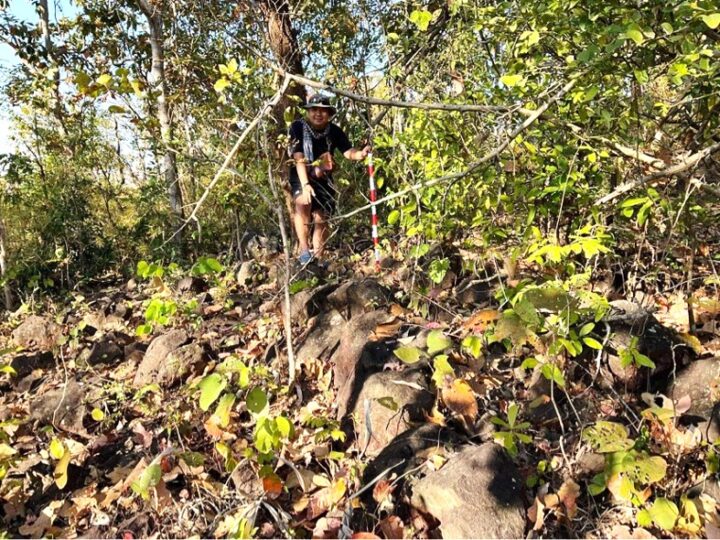
In addition to the piling, another interesting geological observation is the formation usually consists of basalt of similar sizes which can be carried and moved by humans. This suggests that these basalt rocks may have been carefully chosen.
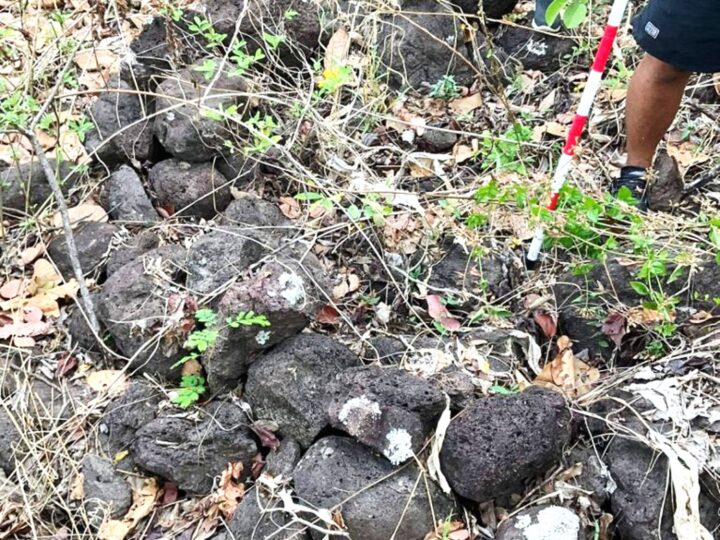
In addition, each basalt group contains basalt of various textures, including massive basalt, vesicular basalt, and scoria — an impossible geological occurrence — as the different textures have to be the result of different eruptions in different areas.
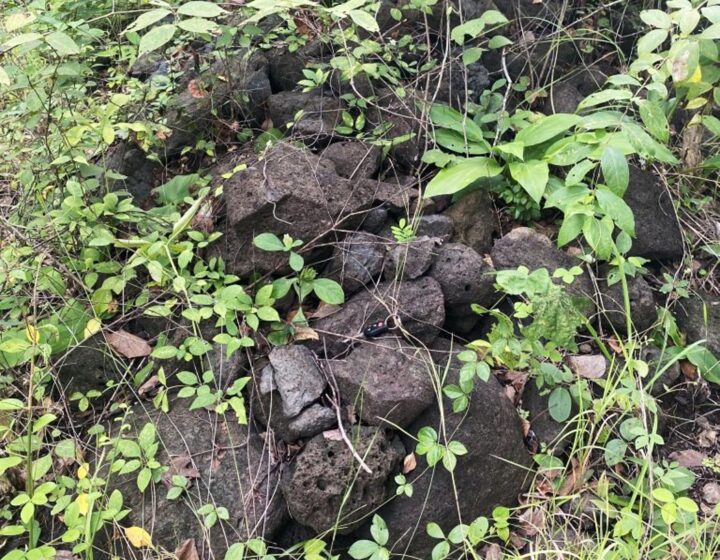
Literature review in other archaeological sites revealed similar formations of rocks, for example, in an archaeological site in northern Michigan, the USA. Prof. Dr. Santi concluded that the piles or lines of basalt found on Khao Phanom Rung and Khao Plai Bat were made by humans who selected rocks of appropriate sizes and moved them into a formation for construction or other purposes. Apart from Prasat Hin Phanom Rung, Prasat Hin Khao Plai Bat I, and Prasat Hin Khao Plai Bat II located at the top of the mountains, the forested areas on both mountains were used as residence of people in the past as well.
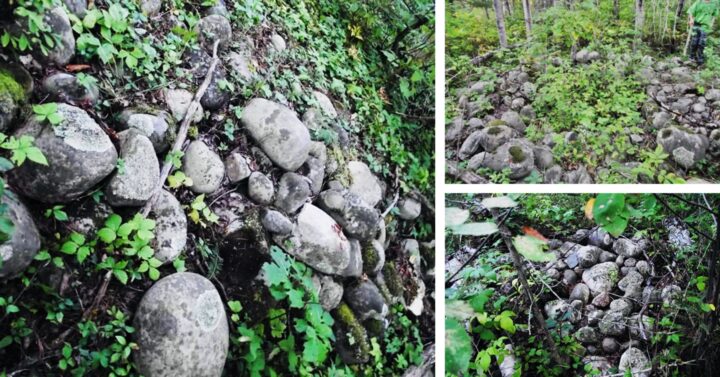
Geological Team: Prof. Dr. Santi Pailoplee, Kang Vol Khatshima, Sombat Mangmeesukhsiri, U-tain Wongsathit, Punya Charusiri, Panya Nakratok, Chakkrit Udornpim, and Tamsak Wongmuneeworn

